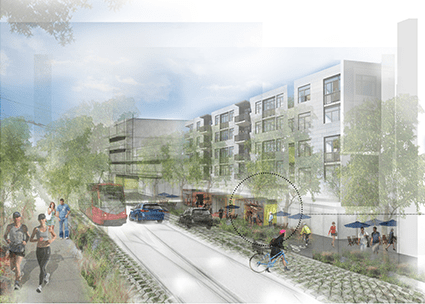Green Queen City
As a follow up to the School of Architecture’s spring 2014 SUPERstudio, this initiative will explore opportunities that Charlotte may have to both address climate change and to strengthen its urban form.
The premise of the SUPERSTUDIO took climate change and the local regional environment as a point of departure:
As sea levels rise, cities like Wilmington, NC face significant challenges. Rising sea levels will change that city’s relationship to its coastal edge and this represents an opportunity to develop green and resilient infrastructure and urban forms that can withstand future climate changes. Using GIS and other visioning media, students focused on Wilmington’s urban morphology, development patterns, and environmental characteristics in order to identify new urban interventions that will support a new set of relationships between urbanity and nature. The next phase of that research involves collecting the design responses to Wilmington’s coastal challenges from the SUPERstudio into a report, which will be shared with the City of Wilmington’s Planning Department.
The CBL will then turn its attention to Charlotte and explore various ways of implementing sustainable urban design strategies locally as an “inland” response to global climate changes. We will work with partnering organizations to secure funding, to develop innovative visions of Charlotte, and to create scholarly materials (including speculative design proposals) of practical value to both our partners, the City.Building.Lab. and associated faculty.
The objective of these partnerships will be to combine the expertise of the UNC Charlotte School of Architecture’s faculty and students with that of others not for profit organizations in a mutually beneficial relationship that will yield positive results for both parties. Projects like this one strategically position the University to pursue scholarly activities in ways that address civically meaningful challenges and that that foster real community value through a focus on both process (projects that originate with the needs of community partners) and products (usable plans written with partners and citizens as their main audience).
